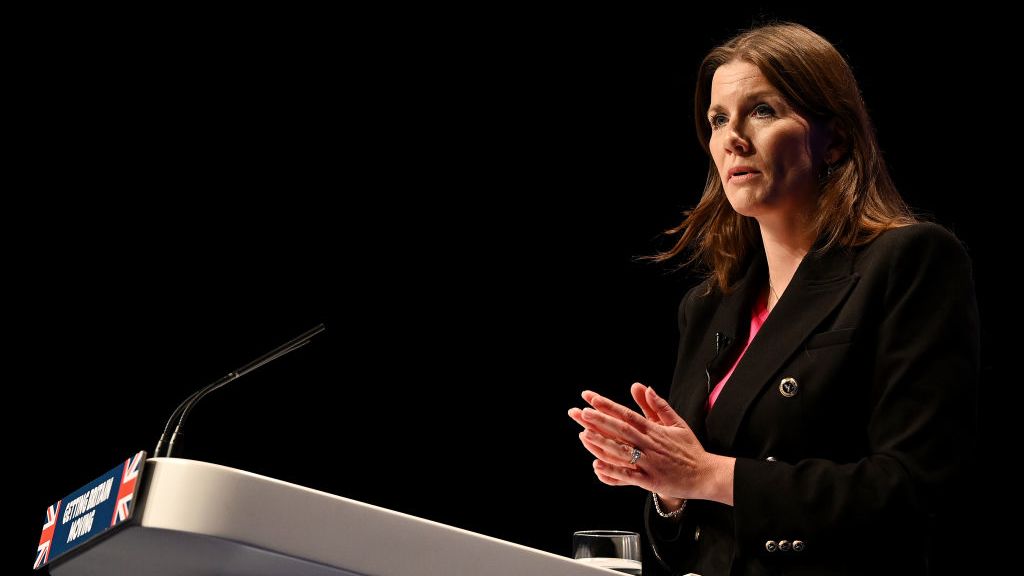UK government draws up new laws after social media firms spurn abuse talks
Heavy GDPR-like fines proposed for firms that fail to tackle abuse


The culture secretary has pledged new laws to regulate social media firms after being snubbed by 10 out of 14 companies invited to consult on regulation.
Speaking on the Andrew Marr Show yesterday, Matt Hancock, secretary of state for culture, digital, media and sport, said the government does not have adequate power to regulate social media firms, and that self-policing to this point has not worked.
He revealed that being ignored by several major players in the industry - who were invited to contribute on plans to tackle online abuse, to remove inappropriate content, and introduce a levy - has given him greater motivation to introduce new legislation.
"The fact that only four companies turned up when I invited the 14 biggest in; it gave me a big impetus to drive this proposal to legislate through," Hancock said. "Before then, and until now, there has been this argument - work with the companies, do it on a voluntary basis, they'll do more that way because the lawyers won't be involved.
"And after all, these companies were set up to make the world a better place. The fact that these companies have social media platforms with over a million people on them, and they didn't turn up [is disappointing]."
"One of the problems that we've got is we engage with Facebook and Google and Twitter, and they get all of the press, they get all of the complaints in the public debate, but there's now actually a far greater number of social media platforms, like musical.ly and others, that didn't show up."
Announcing the proposed legislation, Hancock said: "Digital technology is overwhelmingly a force for good across the world and we must always champion innovation and change for the better.
Sign up today and you will receive a free copy of our Future Focus 2025 report - the leading guidance on AI, cybersecurity and other IT challenges as per 700+ senior executives
"At the same time I have been clear that we have to address the Wild West elements of the internet through legislation, in a way that supports innovation."
The new laws, which the culture secretary said are likely two years away, will follow failed efforts to engage with tech giants voluntarily on new regulations, outlined in a policy paper last year.
Whitehall's proposal, which had invited views from tech companies prior to feeding into legislation, said the 'levy' would be sought on a voluntary basis, with the document reading: "We may then seek to underpin this levy in legislation, to ensure the continued and reliable operation of the levy." It adds: "The levy will not be a new tax on social media."
But now the government is now intent on using legislation to tackle these issues, with part of the Data Protection Bill currently going through Parliament dedicated to introducing fines for indiscretions such as allowing underage users on social media platforms.
Speaking on Sky News' politics show Ridge on Sunday, the UK's digital minister, Margot James, expanded on the government's position, saying: "The consultation that we conduct is quite likely to result in measures that we will outline into law that will oblige companies to take content down - and obviously there will have to be consequences for them to face if they don't comply."
Asked what these consequences would be, James added: "In the data protection legislation that is just finishing its passage through Parliament at the moment, there is the capacity for the Information Commissioner to fine companies up to 4% of their global annual turnover. We would envisage something similar in this area.
"Obviously that would be a cap - like a maximum - and there would be a scale of other deterrents en route to that. But we do understand that companies need to face consequences if they do not comply with laws applicable online just as they are online."
DCMS and the Home Office will publish a white paper later this year with further details.
Antony Walker, deputy CEO of trade industry body TechUK, said: "Where we can move quickly with confidence on the effectiveness of the outcome we should do. But we must avoid 'quick fixes' that are unworkable and could end up being counter-productive. We need to get to a position where government and tech firms are 100% aligned on what needs to be done so that we can get on and implement solutions that we can all have confidence will work.
"There is still a lot of work to be done between now and the publication of a white paper, and as a sector we want to keep building on the serious and constructive engagement that has happened to date."
Picture: Shutterstock

Keumars Afifi-Sabet is a writer and editor that specialises in public sector, cyber security, and cloud computing. He first joined ITPro as a staff writer in April 2018 and eventually became its Features Editor. Although a regular contributor to other tech sites in the past, these days you will find Keumars on LiveScience, where he runs its Technology section.
-
 Three things you need to know about the EU Data Act ahead of this week's big compliance deadline
Three things you need to know about the EU Data Act ahead of this week's big compliance deadlineNews A host of key provisions in the EU Data Act will come into effect on 12 September, and there’s a lot for businesses to unpack.
-
 Governance, risk, and compliance is a major growth opportunity, but how will the market develop?
Governance, risk, and compliance is a major growth opportunity, but how will the market develop?Industry Insights As DORA, NIS2, and AI regulations shake up the compliance landscape, GRC could be a golden opportunity for the channel
-
 UK financial services firms are scrambling to comply with DORA regulations
UK financial services firms are scrambling to comply with DORA regulationsNews Lack of prioritization and tight implementation schedules mean many aren’t compliant
-
 What the US-China chip war means for the tech industry
What the US-China chip war means for the tech industryIn-depth With China and the West at loggerheads over semiconductors, how will this conflict reshape the tech supply chain?
-
 Former TSB CIO fined £81,000 for botched IT migration
Former TSB CIO fined £81,000 for botched IT migrationNews It’s the first penalty imposed on an individual involved in the infamous migration project
-
 Microsoft, AWS face CMA probe amid competition concerns
Microsoft, AWS face CMA probe amid competition concernsNews UK businesses could face higher fees and limited options due to hyperscaler dominance of the cloud market
-
 Online Safety Bill: Why is Ofcom being thrown under the bus?
Online Safety Bill: Why is Ofcom being thrown under the bus?Opinion The UK government has handed Ofcom an impossible mission, with the thinly spread regulator being set up to fail
-
 Can regulation shape cryptocurrencies into useful business assets?
Can regulation shape cryptocurrencies into useful business assets?In-depth Although the likes of Bitcoin may never stabilise, legitimising the crypto market could, in turn, pave the way for more widespread blockchain adoption

